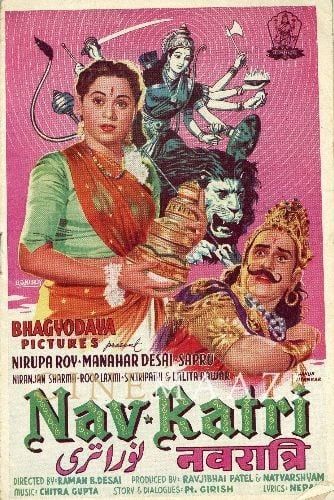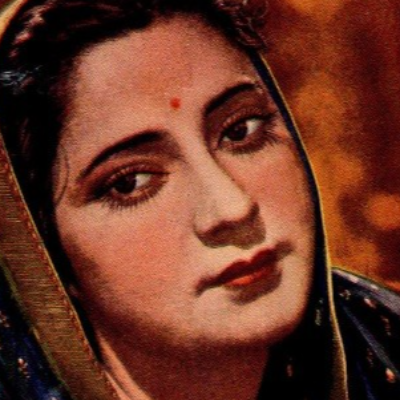Ustad Ali Akbar Khan

- Born: 14 April, 1922 (Shibpur, Bengal Presidency)
- Died: 18 June, 2009 (San Anselmo, California, USA)
- Primary Cinema: Hindi
- Parents: Madina Begum, Allauddin Khan
- Spouse: Zubeida , Rajdulari Khan Sahiba, Mary Khan
Padma Vibhushan-awardee Ustad Ali Akbar Khan was a noted music composer, sarod player, and teacher who presented classical Indian music to the West. Born 14 April, 1922, he received his training from his father, maestro Alauddin Khan. Performing from the age of 13, he went on to become the court musician to the maharaja of Jodhpur for seven years. A Hindustani classical musician of the Maihar gharana, he was conferred the title Ustad or master musician by the state. His fame grew when he was invited by renowned violinist Yehudi Menuhin to New York City in 1955. Many performances and recordings followed in the West, where he also often performed with his brother-in-law, the famous composer and sitarist Ravi Shankar. Invited to compose music for films, Ustad Ali Akbar Khan scored the music for Chetan Anand's Aandhiyan (1952), Satyajit Ray’s Devi (1960), Tapan Sinha's Kshudita Pashan (Hungry Stones, 1960), and the Ismail Merchant-James Ivory production The Householder (1963), for which he won the Best Musician of the Year award. Khan also played the sarod for a song in the film Seema (1955 ), as well as composed some of the music for Bernardo Bertolucci's Little Buddha (1993). He also composed several classical ragas, becoming the first Indian musician to record the long, elaborate manifestations of Indian music performances;
He was born on 14 April, 1922 in Shibpur, Bengal Presidency, British India, to a famous musician and teacher father Allauddin Khan, and Madina Begum. The family moved back to Maihar in present day Madhya Pradesh, soon after his birth; his father was the main court musician for the maharaja of the princely state. From a young age itself, Ali Akbar Khan was trained by his father in different instruments as well as in vocal composition. He found his calling in the sarod, practising zealously for as many as 18 hours a day. He also learned to play the tabla and the pakhavaj from his uncle, Aftabuddin Khan, whom he visited at Shibpur. During this time he also interacted with sarodist Timir Baran and flautist Pannalal Ghosh, who came to be trained by his father. His sister Annapurna Devi also joined him in his training, as did Ravi Shankar—the two would later go on to marry in 1941.
Years of concentrated training later, Khan gave his first performance at a music conference in Allahabad in 1936. He was all of 13. Three years later, he accompanied Ravi Shankar on the sarod during the latter’s debut performance at the same conference. They would go on to perform many jugalbandis or duets together. Ali Akbar Khan gave his first recital on All India Radio (AIR), Bombay in 1938. He was accompanied on the tabla by Alla Rakha. In January 1940, he began giving monthly performances on AIR, Lucknow. The year 1944 saw him and Shankar leaving Maihar to pursue their careers as professional musicians. While Shankar went to Bombay, Khan became the youngest Music Director for AIR, Lucknow, handling solo performances and composing for the radio orchestra.
Ali Akbar had been appointed court musician for the Maharaja of Jodhpur, Hanwant Singh in 1943. Bestowed the title of Ustad by the maharaja, he also taught, composed, and gave music recitals. With India gaining Independence and the subsequent dissolution of the princely states, compounded by the passing away of the Jodhpur ruler, Ali Akbar Khan moved to Bombay. Films beckoned and Khan went on to make a name scoring music for films such as Chetan Anand's Aandhiyan (1952) for which Lata Mangeshkar reportedly sang the title song, Har kahin pe shaadmani gratis, as a token of respect to the maestro, followed by Satyajit Ray's Devi (1960), Merchant-Ivory's The Householder, and Tapan Sinha's Kshudita Pashan (Hungry Stones, 1960), for which he won the Best Musician of the Year award. Khan also played the sarod for a song in Seema (1955) which had music composed by Shankar Jaikishan. He also scored some of the music for Bernardo Bertolucci's Little Buddha (1993).
Ali Akbar Khan was also known for his musical recordings. Starting in 1945, he began recording a series of 78 rpm disks at HMV Studios, Bombay. These could hold around three minutes of music. His new composition Raga Chandranandan which translates as moonstruck, based on four evening ragas, Malkauns, Chandrakauns, Nandakauns and Kaushi Kanada, became very popular. The raga achieved worldwide popularity when a 22-minute rendition was re-recorded for the Master Musician of India LP in 1965.
Ustad performed not only in India but across the West. Disseminating Indian classical music, he founded the Ali Akbar College of Music in Calcutta in 1956, as well as the in Berkeley, California in 1967, later moving it to San Rafael, California, followed by yet another branch in Basel, Switzerland in 1985.
Among his well-known concert performances, he performed in Boston with Shankar Ghosh in 1969 for the Peabody Mason Concert series. Incidentally, he was first Indian musician to record an LP album of Indian classical music in the United States as well as to play the sarod on American television. Performing classic duets with noted musicians such as Ravi Shankar, Nikhil Banerjee, violinist L. Subramaniam, and Vilayat Khan, he also collaborated with Western musicians. He also performed in 1971 at the Madison Square Garden for the Concert for Bangladesh, alongside prominent musicians such as Ravi Shankar, Alla Rakha, George Harrison, Bob Dylan, Eric Clapton and Ringo Starr.
Ustad Khan had been richly awarded in the course of his career. Honoured with the Padma Bhushan in 1967 and the Padma Vibhushan in 1989, he also received a MacArthur Fellowship in 1991. He was the first Indian musician to receive this acclaimed grant. He received the National Endowment for the Arts' prestigious National Heritage Fellowship, which is the United States' highest honour in the traditional arts, in 1997. He also received five Grammy nominations over the years. He was also a Distinguished Adjunct Professor of Music at the University of California, Santa Cruz.
On the personal front, he was married thrice—to Zubeida Begum, Rajdulari Khan Sahiba, and Mary Khan. Survived by 8 sons and four daughters, six of his children are musicians, namely Aashish Khan Debasharma (sarod), Dhyanesh Khan (sarod), Ameena Perrera (sitar), Pranesh Khan (tabla), Rajesh Khan (sarod), Alam Khan (sarod), and Manik Khan (sarod). His grandson, Shiraz Ali Khan is also a sarod player.
Having been based in America for the last four decades of his life, touring and teaching, Ustad Ali Akbar Khan passed away on 18 June, 2009.
References
Banner Image Courtesy: holidayatthesea.com
Profile Image Courtesy: eSamskriti







.jpg)


